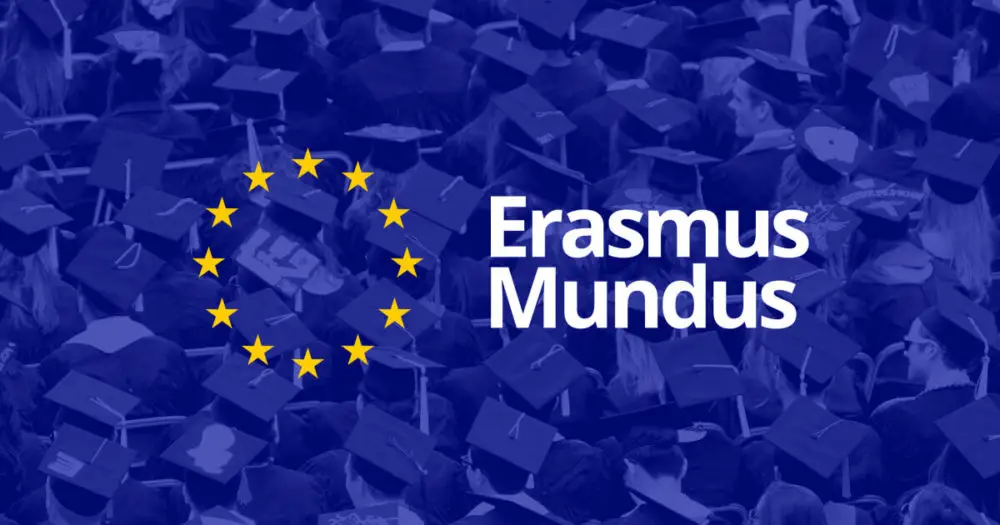
Complete Guide to applying for Erasmus Mundus Scholarships
Erasmus Mundus is one of the most prestigious and competitive scholarship programs in the world. Erasmus scholarship is a fully funded program in Europe.
Read carefully all the points of the Erasmus Mundus Scholarship Guide before consulting the Erasmus Mundus Catalog 2021-2023
Overview
An Erasmus Mundus Joint Master’s Degree (EMJMD) is an international, prestigious, and integrated study program, delivered jointly by an international group of higher education institutions.
The EMJMDs award EU-funded scholarships to the best student candidates who apply in annual selection rounds.
The study must be carried out in at least two of the Program countries (European Countries). Part of the studies can also take place in the partner countries if an institution from the partner country is involved.
duration
An EMJMD is a study program of 60 (approximately the equivalent of 1 year of a master’s degree), and 90 or 120 ECTS credits (approximately 2 years). This means that it lasts from a minimum of 12 months to a maximum of 24 months.
Conditions
Master’s level students worldwide can apply.
You must have obtained a first higher education degree or demonstrate a recognized equivalent level of learning, in accordance with national law and practice, in the countries that award the degree.
If you have already received an EMJMD or Erasmus Mundus Master Course (former EMJMD name)/joint doctorate (Erasmus special name for doctoral scholarships) scholarship, you are not eligible for an additional EMJMD scholarship. You cannot benefit from another EU-funded scholarship program while receiving an EMJMD scholarship.
Academic Outcome
Successful completion of the study program will lead to the award of a joint degree (i.e. a single degree certificate issued on behalf of at least two higher education institutions of the EMJMD consortium) or multiple degrees (i.e. at least two-degree certificates issued by two higher education institutions of the consortium).
Financial support
In order to receive financial support from Erasmus Mundus, you must first be admitted to the course by the organizing consortium and then be selected for an EMJMD scholarship. At EMJMD not all selected students get an Erasmus Mundus scholarship. Students who do not receive a scholarship can study if they can afford the cost of the program.
The EMJMD scholarship covers your participation costs (including tuition fees, library and laboratory costs, full insurance coverage, and any other mandatory costs related to your participation in the Master’s); it represents a contribution to your travel and accommodation costs and includes a monthly subsistence allowance for the entire duration of the study program.
The total scholarship amount varies depending on the length of your course and your nationality (non-EU students receive larger scholarships). The exact quantities may vary for the next batches, so I do not mention any details here. However, the stipend is enough to study in any country in Europe and lead a normal life. The stipend and scholarship are received once you arrive at your first university for the first semester in the “Home Country”.
A minimum of 75% of the scholarships are awarded to candidates from partner countries.
How to apply for Erasmus Mundus scholarships?
Paso 1
Students should consult the EMJMD Catalog online ( https://eacea.ec.europa.eu/erasmus-plus/library/emjmd-catalogue_en ) and contact the consortium (contacts of the coordinators are on the site website of each program) offered by the Master for more information on courses and application procedures
The above link lists all the Erasmus Mundus Joint Master Degrees (EMJMD) that will offer EU-funded scholarships for courses to be held in the current academic year (wait for the catalog to be updated in October for the next academic year batch).
Most Master’s programs will open applications at the end of October and require applications to be submitted no later than December-January or sometimes as late as February/March (opening and closing dates vary from program to program), for courses beginning the following academic year.
Students can apply to a maximum of three different programs. Students should contact the corresponding master’s coordinators directly for more information about courses and application procedures.
Clicking on the acronyms (in the link above) will open the websites of the respective MSc courses.
By clicking on the title of the master’s courses, you will access the Erasmus Mundus project results platform. The platform describes the EMJMDs in detail and is constantly updated by universities.
Overall Eligibility
- Final semester/year students can apply to many programs if they expect to complete their undergraduate degrees around June/July of the current year, although you should check the specific program websites and email the coordinators to confirm this.
- English language proficiency is a mandatory requirement (some programs will accept your university’s letter of English proficiency, but most want IELTS/TOEFL mandatory to apply). To be on the safe side, take the IELTS/TOEFL no later than October/November. Most programs require 6.5 and some require 7 points in IELTS or its equivalent in TOEFL. Some programs also require that no individual score within IELTS be below 6 (or equivalent for TOEFL).
- You need your passport as your identity document to apply, so apply for it and keep it ready around September/October. Applications for most programs open in October and variably end around January, February, or even March (rarely). The opening of applications and deadlines to apply to vary from program to program.
Step 2: Required Documents
All programs have different requirements. All programs primarily provide a grid of weights or a general idea of the application components they will consider to determine its merit.
For example, Academic qualification 20%, Experience in the same field 15%, Knowledge of the subject 10%, etc.
- Title and Notes
- 2 Letters of recommendation (again you must check the requirements of the program). Formats vary from program to program, your online application will contain guidelines.
- Motivation letter (The length of the words will vary greatly from one program to another). Some give no limit, others may give only one paragraph. Here you can see an example of a motivation letter for scholarships.
- IELTS/TOEFL (6.5 is safe for most in IELTS or the equivalent in TOEFL), however, 7.0 is needed for some more competitive programs so aim for a 7.0. Make sure you take the standard tests early, as places sometimes get booked up close to the Erasmus deadlines. The availability of the result of such tests also takes time.
- CV in Europass format ( https://europass.cedefop.europa.eu/editors/en/cv/compose )
- valid passport
- Residence Certificate – Indicates that you have not lived in Europe for 1 or more years in the last 5 years (if you wish to apply as a student from the partner country). It can be a letter from the university/workplace/municipal office, etc., and certify it by a notary public. Note: Ideally, include your passport number also on the previous residence certificate and it should be on letterhead, if possible, with the signature/stamp of the authorized person and certified by a notary public.
The only thing they are checking through this letter is that you should not have lived 12 months or more in Europe in the last 5 years. Otherwise, you are considered a student from the program country (such as European citizens) and not a student from the partner country (non-European countries with higher scholarships because we are not from Europe, so our cost of attendance would be high) - Any other documents you feel are important to your selection, such as certificates of experience, projects, GRE scores, maybe if they are high, certificates, seminars/lectures/workshops attended, honors and awards, etc. (These are not required, but are uploaded or attached to the Europass CV to show your credentials).
- Of course, the completed application form
Step 3: After submitting the application
In the event that you are shortlisted after the initial screening of applications (complete/valid information plus merit-based selection based on your documents, qualification, etc.), you will be notified of your online interview via email (some programs do not do interviews, so don’t worry if there isn’t one for your show). Skype interviews are the last step if you are shortlisted and if there is an interview for your program, after that you are selected with or without a scholarship and you are informed by mail to confirm your admission by completing the required paperwork.
Acceptance/rejection dates will vary based on deadlines. Programs with early deadlines announce results a little earlier than others. But after selection, all students fly to Europe usually around SEPTEMBER.
It may interest you:
Key points to increase your chances of selection
Erasmus Mundus is a highly competitive and therefore highly prestigious scholarship.
I’ve identified a few key areas that have a big impact on your selection chances (Note: It’s not a rule that these points work as I type), it’s purely for guidance purposes.
- Grade point average is important in Erasmus scholarships (GRE is not required, so grade point average is sometimes the most important factor that can win the degree or make up for your other below-average areas). However, a low-grade point average is not a barrier.
- Fluency in English (95% of Master’s programs are taught in English), however very few programs might require fluency in some European languages as well, as one or a few semesters are offered in local languages, so check the site’s individual websites before applying for any specific program.
- The relevance of the field in which you are applying and your academic and professional background.
- Knowledge of the field in which you are applying (interviews are sometimes technical and long, also a kind of test)
- Experience in the same field demonstrated through internships/work experience, etc.
- Your intention and ability to study/work in very diverse and intercultural contexts (also demonstrate this in your interview if you have traveled/projected/worked etc. with some foreigners)
- Your motivation letter MATTER MUCH more than you can spend time on it.
- Recommendation letters
- Your extracurricular activities, and massive open online courses matter, especially when you change fields a bit and/or when your grade point average isn’t too high.
- Your passion and intention to study in the field you applied to, demonstrated through a motivation letter and interview, as well as taking relevant courses/internships, etc.
Erasmus Mundus Scholarships Frequently Asked Questions
How can I improve my profile and increase my selection possibilities?
In addition to your educational performance, your complete profile is important. So always make sure you take certificates for extracurricular activities. The relevant online courses on Coursera etc. also help. Internships/experience/projects/relevant research papers, it all counts. Make sure you do a thorough preparation.
What happens if I am rejected for ERASMUS?
The biggest reason for rejection is not applying. Apply anyway, take IELTS! Your hard work can meet ERASMUS this time.
Can I apply for ERASMUS MUNDUS even if I did not graduate from one of the best universities?
The name of your undergraduate university does not matter for ERASMUS. Students from all universities enter.
How do I know which program I am eligible for?
The names of the programs are not typical for ERASMUS. Please review all program websites thoroughly and you may find that you are eligible for some relevant programs.
Would ERASMUS help me in my future Ph.D. goals?
ERASMUS Master is the preferred title for a doctorate in Europe. Most people can enroll in a Ph.D. abroad immediately after their Erasmus MS. However, Erasmus Mundus is for MS level admissions only.
Which IELTS test should I take?
GENERAL IELTS is not acceptable for ERASMUS MUNDUS applications. Only ACADEMIC IELTS or TOEFL.
I am currently enrolled in an undergraduate program. How can I be proactively eligible for ERASMUS?
You should know that if you are applying for the master’s for the following year, you will need your grades and degree IN HAND at the latest at the end of July or the beginning of August. There is no set date but virtually without a degree and additional certifications your selection will not become unconditional and so some programs may allow you to fly to Europe with just a transcript but most will not.
If you don’t have a degree by the end of July, it would be very difficult to get to your European universities on time.
How much experience is required to apply for the ERASMUS application?
You do not need full-time experience to apply. Many students, including myself, entered while enrolled in undergraduate degrees. Experience is of course a factor of merit but not an eligibility requirement for most programs at least.
Internships do count in that merit factor. People reading for next year should also focus on internships and volunteer work etc. I had an 11-month internship for my 4-year bachelor’s degree. All of them were purely in the field in which I got the ERASMUS scholarship. Whatever you do, make sure it relates to what you want to do in the future. Don’t just fill out the CV. Plan things ahead. Be proactive.
What mistakes should I avoid in my application?
Top 5 negatives in ERASMUS applications:
- Never lie on your application.
- Don’t forget to attach evidence of your internships/jobs and almost any major accomplishments.
- Do not apply to more than 3 programs, you will surely fail in all of them.
- Do not copy exact lines from any letter on Google or copy and paste last year’s Letter of Motivation.
- Lack of knowledge about the program, the content of the website, and the purpose of the program represented in your letter of motivation and/or interview
Can I omit my photo on a CV?
I recommend attaching a professional photo to the Europass CV when submitting an application.
What are some of the benefits of obtaining an ERASMUS scholarship?
- It’s fully funded.
- Comprehensive health insurance.
- Monthly salary.
- Travel and relocation expenses are also covered.
- You get a Schengen visa and see more than 25 countries.
- you can be independent
- Enjoy your stay abroad
- In rare cases, many married couples also study there or support their partners while on ERASMUS.


















This website was… how do I say it? Relevant!! Finally I have found something that helped me. Thank you!
I’m glad to hear that you found the website relevant and helpful! If you’re looking for more resources or have any specific questions, feel free to ask. I’m here to help!
Great, thanks for sharing this article post. Really Great.
Thank you for your feedback! If you’re looking for more information on scholarships, you can explore resources that offer comprehensive lists and guidance. A site like pickascholarship.com can be quite useful for finding various scholarship opportunities that match your needs. If you have any specific questions or need assistance, feel free to ask!